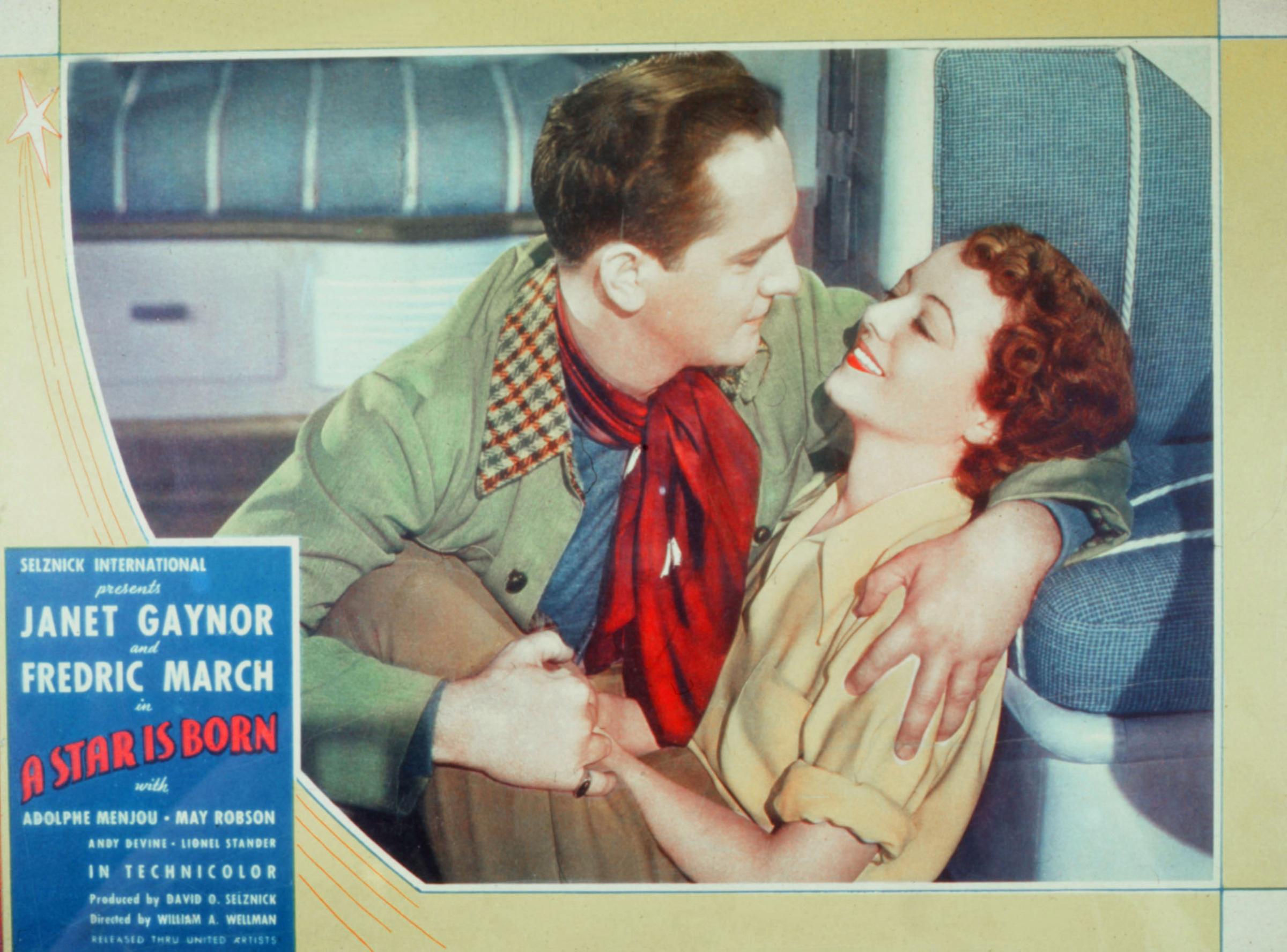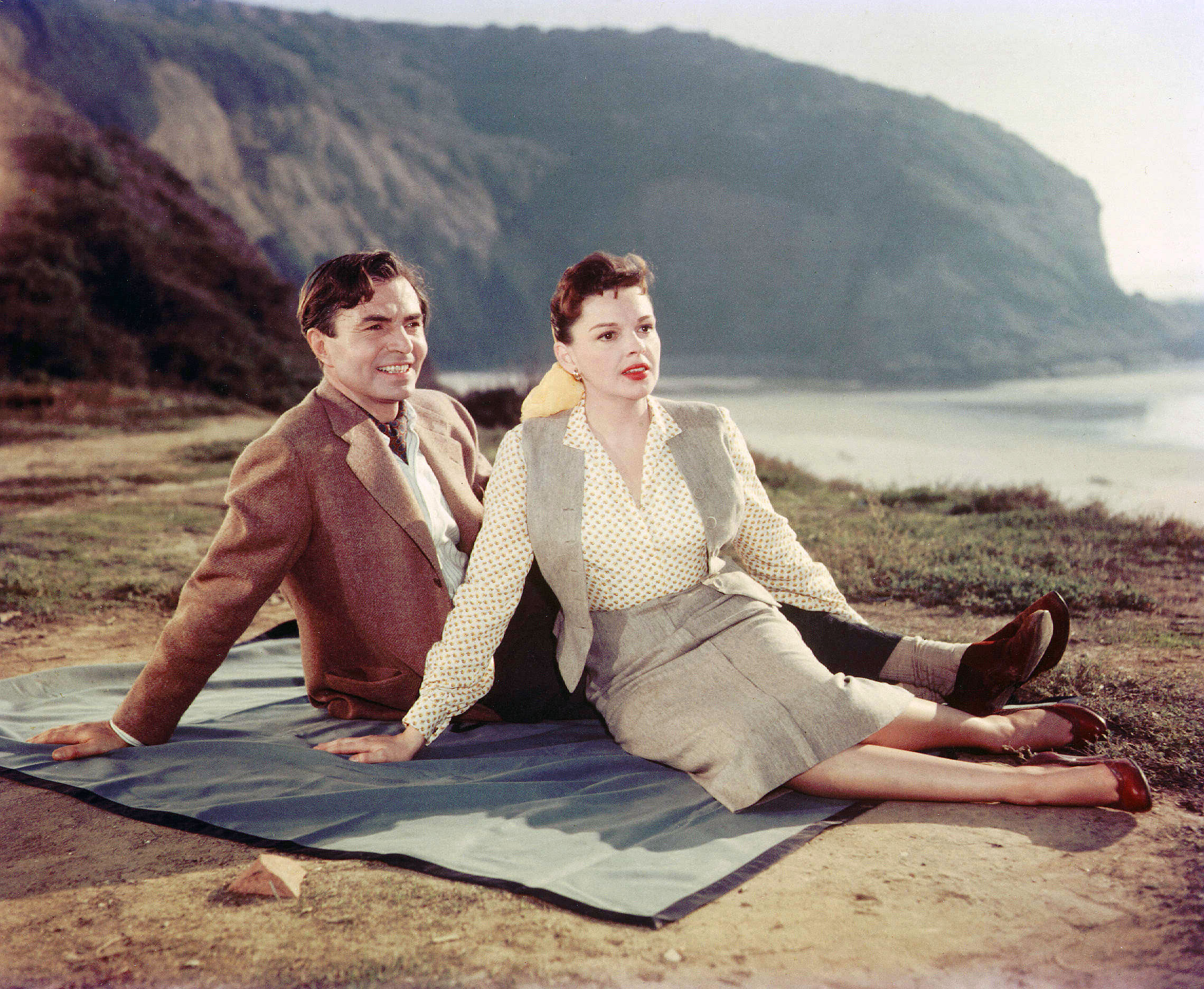Critics and moviegoers alike are excited, to say the least, about Friday’s theatrical release of A Star Is Born — but this is not the first time the story will play on the big-screen. The latest version, starring Lady Gaga and Bradley Cooper (who also directed), is the fourth in almost a century.
Each of the film’s three previous iterations starred a female icon of its moment — not to put pressure on Lady Gaga, whose limited film acting credits include 2013’s Machete Kills and 2014’s Sin City: A Dame to Kill For. She plays a waitress whose life is changed by fame after a country-music star spots her singing in a bar.
A Star is Born is already set to be a huge hit after garnering critical acclaim after its August premiere at the Venice International Film Festival. And, if the movie’s previous versions are any indication, Oscars may be coming: Each of the three A Star Is Born movies was nominated for (and two of the three films won) Academy Awards.
However, not every iteration of the film had the same style, plot or music. In fact, the original was not even a musical. Here’s what made each of the film’s adaptations special — and what contemporaneous TIME critics had to say about them.
1937: The original, a romantic drama

The Plot: The plot of the first film differs the most from the following renditions, as the lead character’s passion is for acting rather than singing. Janet Gaynor (1906-1984) plays Esther, who grew up on a farm in North Dakota. After Esther moves to Los Angeles to pursue acting, she meets Norman Maine (Fredric March), an alcoholic actor Esther looks up to.
What the Critics Said: A May 3, 1937, TIME review critiqued Gaynor, not only for her acting in A Star Is Born, but for her talent in general. March stole the show and lent the movie its “effectiveness”:
A Star Is Born (United Artists) starts by making the point that one girl in a hundred thousand who go to Hollywood to be stars becomes one. It then examines the career of the exception—Esther Victoria Blodgett (Janet Gaynor) who, the day she arrives on the Coast, financed by her grandmother’s nest egg, tiptoes into the outer lobby of Grauman’s Chinese Theatre and stands tremulously in the cement footprints of her favorite actor, Norman Maine. From this point on, the story of A Star Is Born does not differ in superficial outline from the story that has been told a hundred times, usually as an excuse for weak screen musicals.
TIME’s critic also praised the film for containing “a magnificent shot which is possibly the best individual justification of Technicolor yet seen on the screen.”
The Music: The scoring of the movie, which was not a musical, was not nominated for an Oscar, despite its well-known composers. The music was written by Dorothy Dick and Max Steiner (of Gone With the Wind), with the full soundtrack sung by Buddy Clark.
The Awards: The original A Star Is Born, directed by William A. Wellman, was nominated for seven Academy Awards. Gaynor, having already starred in 1927’s Sunrise and 1928’s Street Angel, was certainly Hollywood’s it-girl of the late 1920s and 1930s. Both films won her the respective year’s Best Actress in a Leading Role award at the Academy Awards. (Her 1927 win for Sunrise was monumental, as it took place at the first Academy Awards ceremony in history, making Gaynor the first-ever Best Actress award recipient.) However, though she was nominated, Gaynor lost the Best Actress in a Leading Role award. March, who played Norman Maine, was nominated for but ultimately lost the Best Actor in a Leading Role Academy award, too.
1954: The musical adaptation

The Plot: 1954’s A Star Is Born, directed by George Cukor, took inspiration from the original and showed Esther again as an aspiring Hollywood star. This time, the it-girl of the 1950s was Judy Garland (1922-1969), whose career had taken off with her role Dorothy in 1939’s The Wizard of Oz. Garland’s leading man was played by James Mason, a British actor known for his role in Hitchcock’s North by Northwest (1959).
What the Critics Said: TIME’s October 25, 1954 issue applauded her performance for her musicality and acting, highlighting the improvement in her skills:
As for Judy, she has never sung better. Harold Arlen and Ira Gershwin have given her six good songs—among them one unforgettable lump in the throat, The Man That Got Away. Her big, dark voice sobs sighs, sulks and socks them out like a cross between Tara’s harp and the late Bessie Smith.
An expert vaudeville performance was to be expected from Judy; to find her a dramatic actress as well is the real surprise—although perhaps it should not be. In such pictures as Wizard of Oz, The Clock and Meet Me in St. Louis, Judy showed the first flutters of a nature that could give and sympathize deeply, even where it could not control. In Star the control is still unsure. But the confidence of the heart—which shows in the sudden warm going-under-now look in the eyes—is impressive. Everything she does is a little overdone, but it is a pleasure to see such things done at all. Everybody’s little sister, it would seem, has grown out of her braids and into a tiara.
The Music: The movie’s Oscar nominations included Best Original Song for the TIME-acclaimed “The Man That Got Away” and Best Scoring of a Motion Picture by Ray Heindorf. Heindorf later won the same award for his scoring of 1962’s The Music Man.
The Awards: Like her predecessor, Gaynor, Garland also lost the Best Actress in a Leading Role Oscar. She lost to Grace Kelly for her role in The Country Girl. According to Telegram!, a book of Hollywood history by Linda Rosenkrantz, Garland, who missed the Academy Awards because she was still in the hospital after giving birth to her son, was the favorite for that year’s coveted award. Disappointed with Kelly’s win, Groucho Marx sent Garland a letter, calling her loss “the biggest robbery since Brink’s.”
1976: The musical remake

The Plot: The 1976 adaptation of A Star Is Born — perhaps better known as the Barbra Streisand version — took the previous two films’ backdrop of Hollywood and turned its star into an aspiring singer rather than an actress. Directed by Frank Pierson, who co-wrote the movie with Joan Didion and John Gregory Dunne, the film opens with Streisand’s Esther is discovered by John Norman Howard (Kris Kristofferson), a rock star, as she performs in a bar. This plot line is the most similar to 2018’s rendition.
What the Critics Said: TIME didn’t love Streisand’s performance nearly as much as the magazine had appreciated her predecessors’ takes on the role. In a review headlined “Barbra, a One-Woman Hippodrome,” film critic Jay Cocks wrote that Streisand’s rock ‘n’ roll interpretation was questionable.
Rock ‘n’ roll is not the only problem with A Star Is Born, nor even the basic one. Still, it is a fair place to start.
The trouble with rock ‘n’ roll in A Star Is Born is that there isn’t any. The soundtrack is filled with homogenized harmonics passing for rock, but not a single song is good enough even to be counterfeit. There are whimpy ballads and, on occasion, an up-tempo number that might make the Peter Duchin Orchestra restless. No recognizable rock, however, which is a distinct handicap in a movie that deals with two pop superstars who are supposed to be singing it, playing it and living it.
The Music: Despite Cocks’ concern, the music was perhaps more successful than the film. “Evergreen” also won a Grammy award as the Song of the Year, and the score, composed by Williams and Kenny Ascher, also won a Grammy. Streisand and Kristofferson both sang on the soundtrack, which reached No. 1 on the Billboard 200 chart in February of 1977.
The Awards: Despite some less-than-stellar reviews, the film grossed $80,000,000 in the United States box office and was nominated for four Academy Awards, winning one for Best Original Song. The winning song, “Evergreen,” was co-written by Streisand and Paul Williams.
The first two versions of A Star Is Born depicted Esther winning an Oscar award, but in this one, the character won a Grammy. Because the first two lead actresses lost those awards in real life, Barbra Streisand is the only lead to win the same kind of award for the film as her character does in her respective version.
More Must-Reads from TIME
- Donald Trump Is TIME's 2024 Person of the Year
- Why We Chose Trump as Person of the Year
- Is Intermittent Fasting Good or Bad for You?
- The 100 Must-Read Books of 2024
- The 20 Best Christmas TV Episodes
- Column: If Optimism Feels Ridiculous Now, Try Hope
- The Future of Climate Action Is Trade Policy
- Merle Bombardieri Is Helping People Make the Baby Decision
Write to Rachel E. Greenspan at rachel.greenspan@time.com